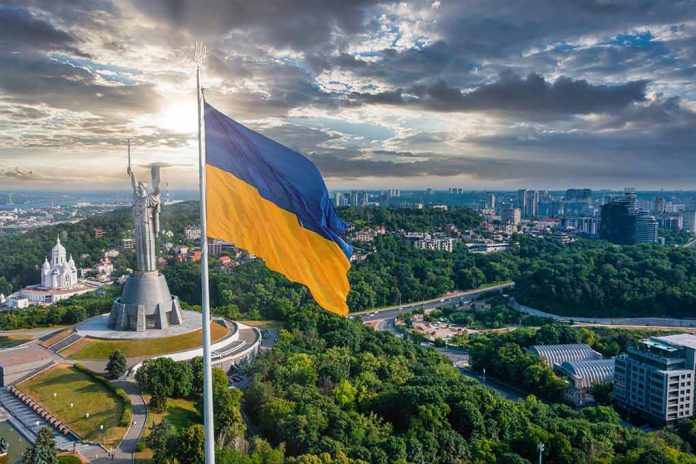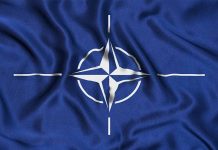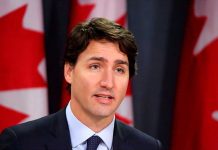
Amid the ongoing conflict between Ukraine and Russia, G7 leaders have underscored their unwavering support for Ukraine, pledging further sanctions against Russia.
At a Glance
- The G7 named Russia as the sole obstacle to a “just and lasting peace” in Ukraine.
- Ukrainian President Zelensky aims for diplomatic resolution by next year.
- The G7 countries plan to maintain strict sanctions against Russia.
- Trump considers peace pathways involving Ukrainian concessions, met with resistance.
- January 2025 marks the third anniversary of Russia’s invasion, with tensions rising.
G7’s Unified Stance
Gathered under the leadership of Italian Prime Minister Giorgia Meloni, G7 leaders have reaffirmed their commitment to supporting Ukraine against Russian aggression. This collective declaration positions Russia as the primary barrier to peace. The G7 has pledged continuous support for Ukraine, vowing to assist until a resolution is achieved. The meeting marks the 1,000th day since Russia’s initial invasion of Ukraine.
Zelensky remains committed to diplomatic efforts, aiming to end the conflict by next year.. He emphasizes the importance of national sovereignty in any discussions of compromise, a point he articulated during an interview with Ukrainian radio.
The U.S., guided by G7 leaders’ commitments as they meet this week, is imposing sanctions on more than 300 individuals and entities that enable Russia's illegal war against Ukraine. We continue to stand in solidarity with Ukraine and promote accountability for Russia’s crimes.
— Matthew Miller (@StateDeptSpox) June 12, 2024
International Dynamics
Despite efforts to broker peace, divisions remain. U.S. President-elect Donald Trump’s proposal includes military aid to Ukraine alongside territorial concessions. This strategy has not been well-received by Ukrainian authorities, who are wary of any compromises undermining their sovereignty. Volodymyr Zelensky stresses the need for U.S. support and continued recognition of Russia as an aggressor.
“We reaffirm our unwavering support for Ukraine for as long as it takes. We stand in solidarity, contributing to its fight for sovereignty, freedom, independence, territorial integrity, and its reconstruction,” per G7 leaders.
German Chancellor Olaf Scholz and Polish Foreign Minister Radoslaw Sikorski, among other European leaders, have reiterated their support for Ukraine. Sikorski highlighted that any decisions about Ukraine’s future must involve Ukraine itself. This sentiment was echoed during key discussions in European forums.
The Road Ahead
Differing approaches from the U.S. and European allies create an uncertain path toward peace. Meeting in Warsaw involving the Weimar Triangle alliance is planned to further commitments. The international community remains steadfast in upholding Ukraine’s sovereignty while seeking a diplomatic solution to the crisis. The resilience of Ukraine, along with international backing, is pivotal in navigating future challenges.
“For our part, we must do everything we can to ensure that this war ends next year. We have to end it by diplomatic means,” said Zelensky.
These efforts are part of a broader strategy by the international community, underscoring the complexity of achieving peace in a war-torn region. As plans unfold, the fate of Ukraine hangs in the balance, with global leaders vested in securing a peaceful future free from Russian aggression.



















